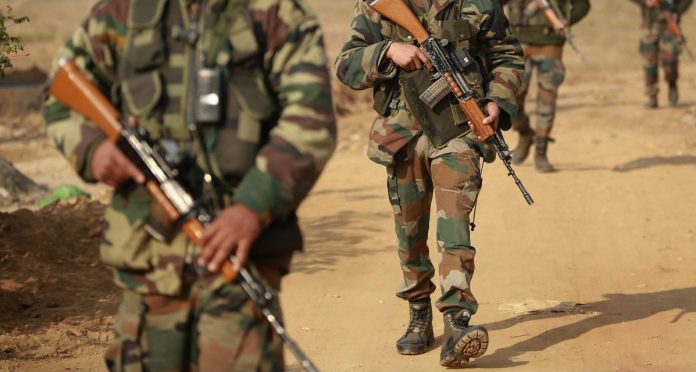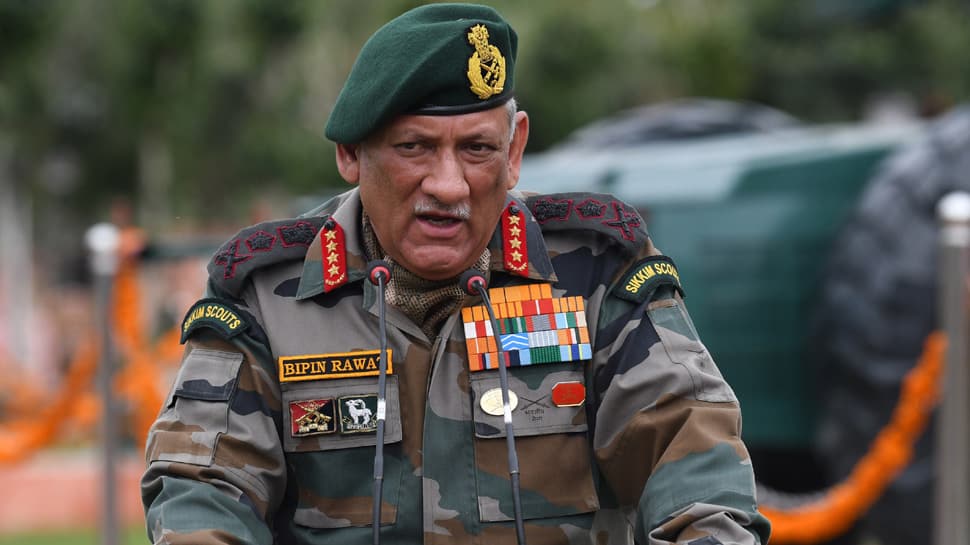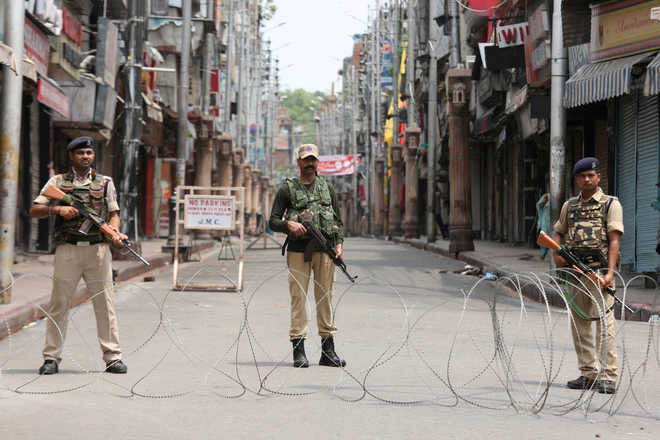Pakistan Prime Minister Imran Khan’s recently concluded three-day visit to the United States of America and his one on one meeting with the POTUS Donald Trump has evoked mixed reactions in India not only due to the controversial statement of Trump but also due to a lukewarm concern displayed by the US authorities with regards to terrorism. The relations between Pakistan and US have been strained ever since the Trump Administration assumed power in US on the issue of Pakistan’s support to the global jihadi terrorist organisations and its involvement in cross-border terrorism in India and Afghanistan. Though, Pakistan’s involvement in cross border terror in Iran is also well established, US does not show much concern due to its strategic concerns in the Gulf region. However, Pakistan’s continued support to the Taliban and Haqqani network operating in Afghanistan including providing the safe havens within its territory irked the new US administration which put Pakistan on notice threatening to suspend all aid including the package for the Pakistan Army. Pakistan failed to read the US intent as in the past it has been getting away playing the nuclear card. The Western world with US in particular is scared of its nuclear arsenal falling in the hands of the jihadi terrorists operating from its soil and succumb to the Pakistani black mail by continuing to dish out doles to successive governments in Pakistan. Trump, however, is made of a different stuff.
“The United States has foolishly given Pakistan more than 33 billion dollars in aid over the last 15 years, and they have given us nothing but lies & deceit, thinking of our leaders as fools. They give safe haven to the terrorists we hunt in Afghanistan, with little help. No more!” is what Trump tweeted on the first day of 2018. Pakistan went to the extent of blaming Trump for “flinging accusations at Pakistan,” as he was disappointed at “US defeat in Afghanistan.” Trump responded by blocking the US aid of approximately three billion US dollars that also included the 300 million USD for Pakistan Army. The Army to Army contact between the two armies, a long-term allies, was also suspended. It was a big set-back for Pakistan with a severe economic crisis already staring at its face. Pakistan did try to put up a brave front initially but its dwindling economy, India’s diplomatic offensive in exposing Pakistan, the firm stand of US administration and the strictness of Financial Action Task Force (FATF) compelled Pakistan under Imran’s leadership to take certain stern measures against the terror industry that was flourishing in Pakistan. Whether, these measures are only a “show window” to win trust of Trump and US authorities as a prelude to Imran Khan’s visit to US or have a sense of seriousness or permanency only time will tell?
Meanwhile, the US has begun preparations for the next Presidential election and Trump has also thrown his hat in the race. He is desperate to have one major diplomatic victory about which he can boast to the American people. His initiative in the Korean Peninsula is not making much headway. The strained relations with Iran are harming him more than helping him boost his image. His high headed tactics of dealing with other countries has won him more enemies than allies. Both China and Russia are also having tense relations with America. Despite India likely to be granted the status of most favoured non-NATO ally and already designated with special STA-1 status, the relationship between the two countries at best can be dubbed as hot and cold. Many in India perceive US as a fickle ally. In nutshell, Trump has more negatives to his credit than positives as far as foreign and strategic relations are concerned. Thus, Trump is desperate to win the Afghan tangle which is not possible without placating the Taliban. US also knows that only Pakistan can exert the desired influence on the Taliban. This forms the background of Imran Khan’s visit to Pakistan as far as American perspective is concerned and unblocking the US aid as far as Pakistan is concerned.
Let’s first discuss Afghanistan. India has emerged as a major soft power in Afghanistan and has a major stake in whatever final settlement takes place. Taliban has been recognised as the key impediment to end of conflict in Afghanistan. Earlier, India was elbowed out of the direct negotiations with Taliban, as claimed by a section of the media. To my mind, it is a deliberate decision by the government to stay away from direct negotiations with the terror group due to adverse ramifications at home. India, however, cannot be ignored and sooner than later would have to be involved in any final settlement in Afghanistan. India remains steadfast on its traditional position of supporting only an “Afghan led, Afghan owned, and Afghan controlled” process which includes the duly elected government in Kabul.
With Pakistan forming as a key partner in Trump’s South Asia Strategy for achieving a political settlement in Afghanistan; defeating al-Qaeda and ISIS- Khorasan; providing logistical access for US forces and enhancing regional stability, it certainly has gained. That is why Pakistan was included for the first time in the trilateral consultations with Russia, China and USA on the Afghanistan peace process held at Beijing on July 10-11.
The entire focus of the US was concentrated on Afghanistan during Imran’s visit which included the Pakistan Army Chief and the ISI chief in the entourage. While Imran Khan has agreed to work with Trump to prod Taliban to strike a peace deal with the aim of extricating the US Army from its longest war, Trump has dangled the offer of unblocking three billion USD aid to Pakistan if Imran succeeds. Imran said, “I want to assure President Trump Pakistan will do everything within its power to facilitate the Afghan peace process. The world owes it to the long-suffering Afghan people to bring about peace after 4 decades of conflict.”
There is no doubt that US is desperate to exit from Afghanistan but is the negotiation with Taliban the best solution? Taliban has not been reformed and its five year brutal rule is still fresh in the mind of the Afghans. It certainly suits Pakistan because it helps it achieve its aim of achieving strategic depth and use Afghan territory for promoting terrorism. It will also put an end to the hope of a democratic Afghanistan, disappointing millions of Afghans who are hoping for a brighter future. India must therefore press for its involvement in the peace talks and ensure that Taliban do not elbow out the elected Afghan government. Trump’s desperation can be gauged from this statement, “I could win that war within a week, and I don’t want to kill 10 million people. Afghanistan could be wiped off the face of the earth. I don’t want to go that route.” India has lot at stake because Afghanistan holds significant economic, security and strategic implications for India. India cannot be a mute spectator but has to ensure that democracy survives in Afghanistan.
As far as counter-terrorism is concerned not much time was devoted to the same possibly to avoid public embarrassment to the visiting premier whose services US badly needs in view of its leverage over the Taliban, thanks to the safe havens it provides to the group’s leadership. But as admitted by Imran Khan himself that more than 40 terror groups exist in Pakistan, the situation is very fragile. Any terror attack in Afghanistan or India with mass causalities with proven links to Pakistan will reverse the new fond relationship between the US and Pakistan. Pakistan will have to tread the path very carefully. Pakistan which considers India a quintessential threat is not going to so easily give up the low cost option of bleeding India through thousand cuts and will attempt to promote the idea of home-grown terror in India due to her inherent fault lines. His statement claiming that Jaish e Mohammad (JeM) operates from Kashmir as well must be seen in this light.
Imran Khan was successful in raising the Kashmir issue during the one on one meeting with President Trump. It was a spin doctored question asked by a correspondent to prevent difficult questions on Pakistan’s involvement in terrorism which would have caused a lot of embarrassment to Pakistan. The question successfully diverted the topic to Kashmir in which Imran lost no time in seeking Trump’s mediation and assistance in resumption of Indo-Pak dialogue on which India has made her stand very clear by stating that talks and terror cannot be held together. “We’ve made all overtures to India to start dialogue, resolve our differences through dialogue. But, unfortunately, we haven’t made headways as yet. But I’m hoping that President Trump would push this process,” Khan said.
Trump surprised everyone with his signature trademark off-the-cuff remark. Trump has developed a habit of speaking or tweeting without preparation or proper briefing. His remark raged a controversy to which New Delhi reacted promptly in order to set the record straight. Fearing a strain in Indo-US relations a number of American bureaucrats and leaders also jumped in to save the situation from worsening. But Trump is Trump and his remark should be seen in the light of his desperation for an early Afghan exit. But Imran has succeeded to once again internationalise Kashmir, after numerous failed attempts by Pakistan in last many years. India has to be careful and thwart ISI’s design to portray home grown terror groups in India by promoting the proxies of ISIS like ISJK, al-Qaeda like Ansar Ghazwa-ul-Hind, Hizbul Mujahideen (HM) and other ISIS affiliate or ISIS inspired terror outfits across the country. ISI will certainly attempt to influence the Left Wing Extremism as has been exposed by the Pune Police disclosing links between urban Naxals and HM.
Imran Khan’s attempt at reviving bilateral trade, as was evident from the large number of businessmen and traders that formed his entourage, and unblock the US aid has failed for the time being and is in no way going to help Imran to come out of the current economic mess. It may force Imran to continue and persist with the various counter terrorism mechanisms put in place including arrest of Hafiz Saeed and more arrests likely provided the Army and ISI permit. The imminent danger of being placed in Black List by the FATF may tie the hands of ISI and Army. Axe is likely to fall more on Afghan specific terror groups like the Taliban and Haqqani network.
The visit has been significant as far as bilateral security cooperation and military-to-military relations are concerned. There is a bright chance of resuming suspended military training programmes for Pakistan. At one point during President Trump’s meeting with Imran, the former also hinted at resumption of the security assistance for Pakistan depending on what both countries achieve concerning Afghanistan.
The major plus point of the visit has been the personal rapport the two have established. There is a great likelihood of a direct tele line between the two leaders further cementing their bonhomie and smoothen any bureaucratic hiccups that may erupt while the two nations are working for the common goal. Islamabad would like to use such an opportunity to sort out other issues in the bilateral realm.
Will there be a change in the Indo-Pacific strategy of the US and will Pakistan succeed in elbowing out India from the US equation in the region, Indian diplomats will have to work hard to ward off any such possibility. Though, the present bonhomie between the two is Afghan specific, what shape it takes in future in case Imran succeeds to placate the Taliban will have to be watched carefully.
(Author is a Jammu based political commentator, columnist, security and strategic analyst. He can be contacted at anil5457@gmail.com)
Hits: 21



















































































































